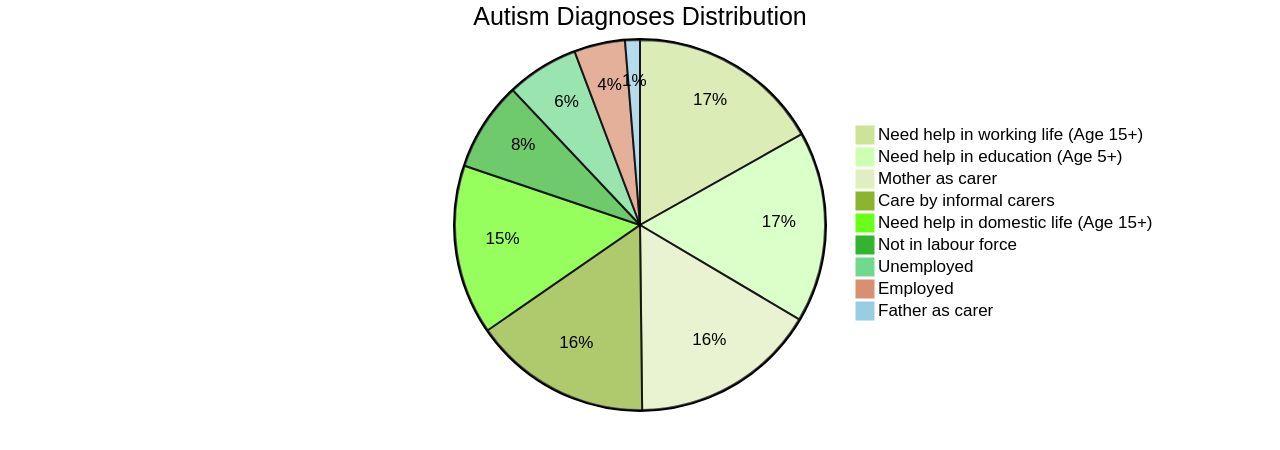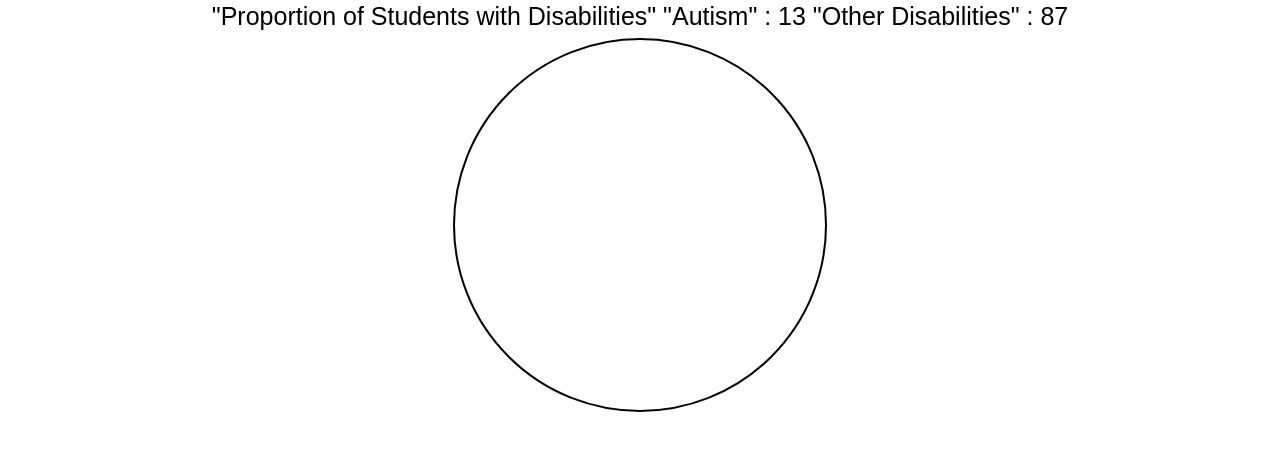Introduction
April is Autism Awareness Month, a time dedicated to fostering understanding and advocacy for individuals with autism spectrum disorder (ASD). With recent reports showing a dramatic increase in autism prevalence, now affecting 1 in every 36 children, the urgency for early diagnosis and intervention is paramount.
This article explores the history of Autism Awareness Month, how it has evolved into a movement for acceptance and inclusion, and provides actionable ways for readers to participate and support the autism community. By challenging stereotypes and promoting understanding, we can work towards a society where every individual, regardless of neurological differences, feels valued and supported.
What is Autism Awareness Month?
April shines a spotlight on autism spectrum disorder (ASD) as Autism Awareness Month, fostering greater understanding and advocacy for the inclusion of individuals with autism. It's a time when the collective efforts of organizations and communities underscore the importance of recognizing the strengths and addressing the challenges faced by those on the spectrum.
Remarkably, recent CDC reports indicate a dramatic increase in autism prevalence, now affecting 1 in every 36 children, compared to 1 in 125 in 2004. This surge underscores the urgency for early diagnosis and intervention, particularly as children diagnosed by age 4 are fifty times more likely to receive vital services.
The DSM-5 outlines the criteria for diagnosing autism, emphasizing the necessity of professional observation for accurate assessment. Despite improvements, disparities persist, with children of color often diagnosed later than their white peers, due to barriers like stigma and limited healthcare access.
Boys are diagnosed about four times more frequently than girls, although research suggests that autism may manifest differently in girls, potentially leading to underdiagnosis. This month also celebrates the contributions of the neurodiverse community, with President Biden's proclamation for World Autism Acceptance Day focusing on reducing disparities in employment, healthcare, and education. Advocacy for inclusive environments, sensory-friendly events, and active listening to the communication styles of those with autism are crucial steps toward empowerment. By challenging stereotypes and promoting understanding, we stand with the autism community, advocating for their rights and inclusion in all aspects of life.

The History of Autism Awareness Month
Autism Awareness Month, initiated in the 1970s by the Autism Society of America, has evolved into a time for education and advocacy. With recent CDC findings showing autism diagnoses in 1 in 36 children and 2.2% of adults nationwide, the importance of this month's mission has only intensified. Autism, characterized by significant social, communication, and behavioral challenges, can lead to overwhelming anxiety and sensory overload, as noted by Chris McDougle of Massachusetts General Hospital’s Lurie Center for Autism.
Efforts like the Autism Welcoming Initiative demonstrate the push for accessible public spaces, while President Biden's proclamation for World Autism Acceptance Day underscores the commitment to improving the lives of neurodiverse individuals. Early intervention, including therapies and educational support, is crucial, with the aim of enhancing the quality of life for those on the spectrum. As we celebrate the contributions and address the needs of individuals with autism, we're reminded of the importance of inclusive design, challenging stereotypes, and advocating for systemic change to ensure everyone's right to thrive is upheld.

How Has It Changed?
Autism Acceptance Month has blossomed from a time of raising awareness to a powerful movement championing the inclusion and acceptance of individuals with autism. It's a call to action to break down stereotypes and build a world where autistic individuals are fully embraced in all aspects of society. Advocates urge for the creation of sensory-friendly spaces and inclusive designs in both community and academic settings, ensuring that every person, regardless of neurological differences, has equal opportunities and feels valued.
The push for flexible work and learning arrangements is a testament to the diverse needs that exist within our communities. With the CDC reporting that 1 in 36 children in the U.S. is on the autism spectrum, it's clear that the conversation around neurodiversity is more relevant than ever. Acceptance is about more than awareness; it's about actively challenging misconceptions, promoting positive representation in the media, and standing up against discrimination to foster understanding and respect for the rich tapestry of human diversity.
The Autism Society's toolkit to promote autism acceptance and the Un's initiative to involve autistic individuals from around the world in discussions about sustainable development are recent examples of how the global community is striving for inclusivity. The increasing prevalence of autism in the education system, where nearly 13% of students with disabilities are on the autism spectrum, highlights the urgency for systemic changes. Autistic individuals and their allies are amplifying their voices, advocating for rights, and striving for a society where everyone is connected to the support they need.

How You Can Participate
As we embrace Autism Acceptance Month, it's a call to action for each of us to become advocates for inclusion and understanding. With the CDC reporting that 1 in 36 children are diagnosed with autism, the need for awareness and acceptance has never been more vital.
The spectrum of autism is broad, with individuals facing challenges ranging from social interaction to sensory hypersensitivity. It's a reality that Chris McDougle, of the Lurie Center for Autism, describes as an overwhelming daily unpredictability and sensory overload.
To foster an environment of acceptance, initiatives like the Autism Welcoming Initiative are pivotal, training businesses to create spaces where autistic individuals can feel at ease. This is crucial as families often fear judgment in public settings.
Moreover, the recent proclamation by President Joseph R. Biden Jr. on World Autism Acceptance Day and the commitment to address disparities in employment, healthcare, and education for autistic individuals highlight the importance of societal support. Participation in Autism Acceptance Month can take many forms, from educating oneself and spreading awareness to supporting local organizations. Every action contributes to a society where autistic individuals are empowered to thrive. As we observe this month, let's remember to celebrate the strengths and contributions of the autistic community, echoing the sentiments of advocates and the call for acceptance over mere awareness. It's not just about understanding autism but also about recognizing the unique qualities each person brings to the table.
Conclusion
Autism Awareness Month is a time to foster understanding and advocacy for individuals with autism spectrum disorder (ASD). With autism now affecting 1 in every 36 children, early diagnosis and intervention are paramount.
The movement for inclusion and acceptance has grown from raising awareness to challenging stereotypes and advocating for systemic change. Efforts like the Autism Welcoming Initiative and President Biden's proclamation for World Autism Acceptance Day demonstrate the commitment to improving the lives of neurodiverse individuals.
Participating in Autism Acceptance Month can involve educating oneself, spreading awareness, and supporting local organizations. By embracing the unique qualities of each individual, we can create an environment where everyone feels valued and supported. In conclusion, let us celebrate Autism Acceptance Month by promoting understanding, challenging misconceptions, and advocating for inclusivity. Together, we can make a difference in the lives of individuals with autism and create a world where diversity is celebrated.




